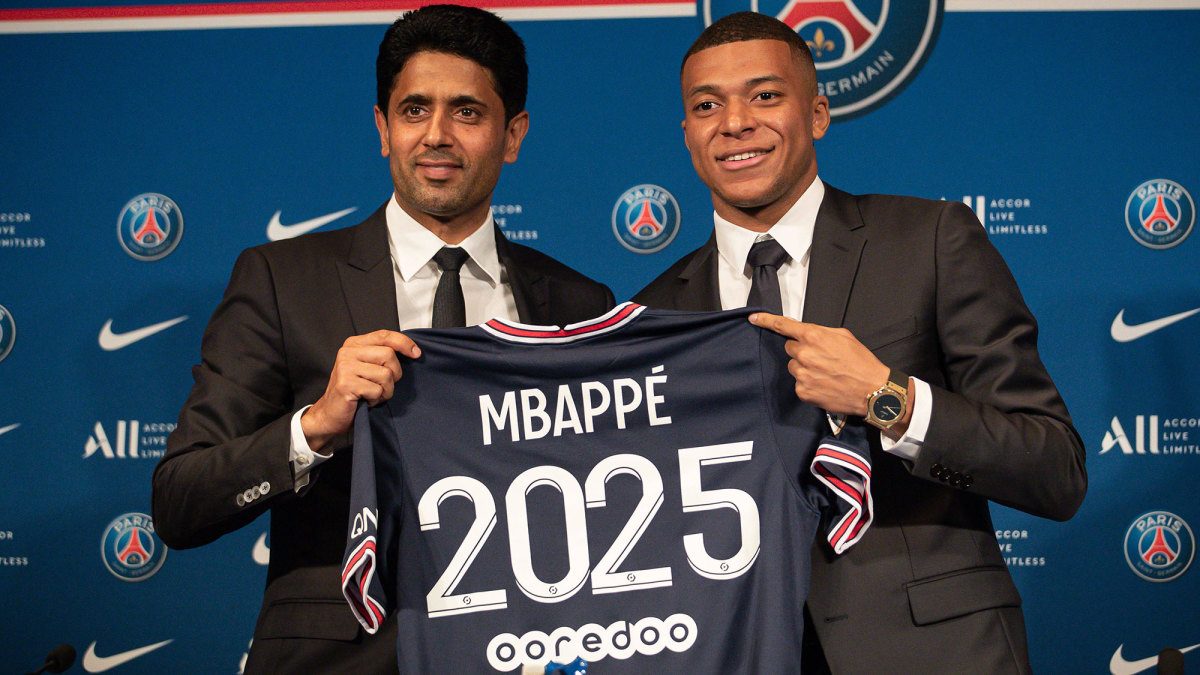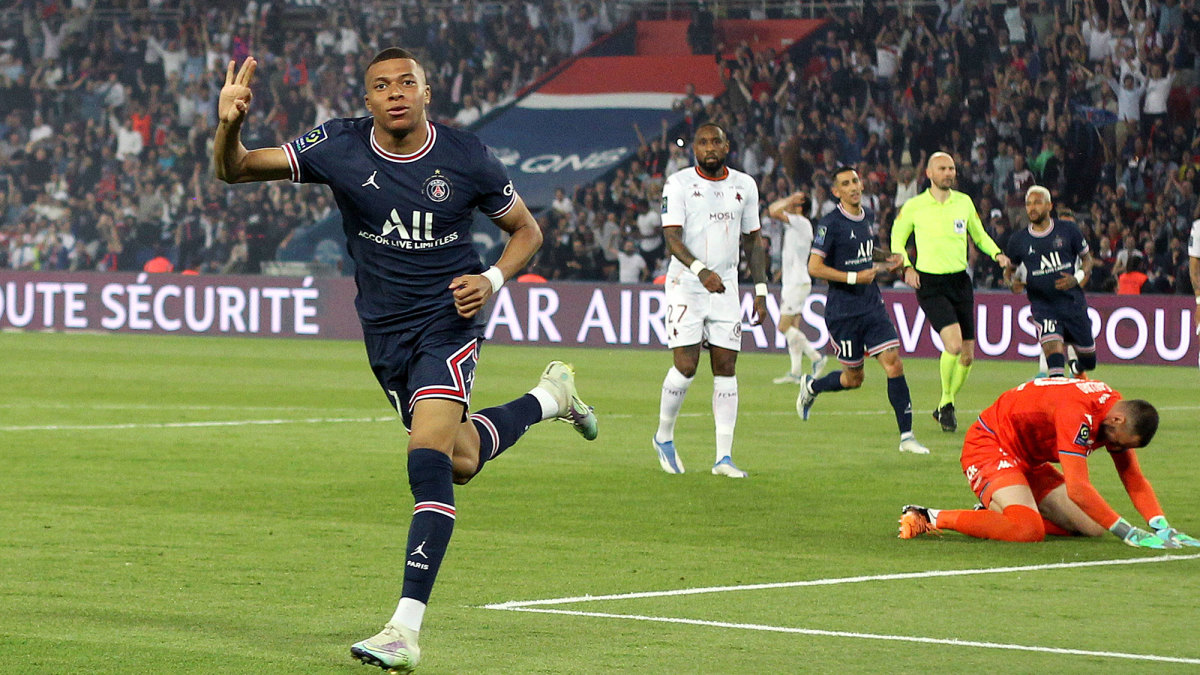The Ugliness That Surrounds Kylian Mbappé’s Transfer Saga
Kylian Mbappé is a wonderful footballer. He is 23, lightning fast, skillful and has, so far, seemingly dealt remarkably well with all the pressure that comes with his fame. And yet it’s impossible not to look at the story of his decision to sign a three-year deal to stay at PSG worth a reported €80 million ($85 million) annually in addition to a signing-on fee believed to be at least €150 million and feel a profound sadness for modern football. Everything about this deal is tawdry.
Mbappé ran down his existing contract, which would have expired at the end of June. He was courted by Real Madrid, which had made a reported €200 million bid for him on deadline day at the beginning of the summer. None of this was about football; it was all about status. Mbappé and his representatives were clever. They played PSG off against Madrid and they have been rewarded. But for that to happen was only possible because of the background forces at work.

PSG is not run for profit. It is run for the greater glory of Qatar, as a tool of soft power and a means of embedding Qatari officials within the Western European establishment. There had been a thought that after the World Cup at the end of this year, Qatar may reduce investment in its football project. This deal is a clear sign its commitment remains as strong as ever.
Madrid, meanwhile, may have won La Liga and will take part in Saturday’s Champions League final after eliminating the likes of Mbappé’s PSG, Chelsea and Manchester City in exhilarating fashion, but it is still lurching from crisis to crisis. The pandemic hit its finances hard, and, for all that Vinicius Junior, Eduardo Camavinga and Rodrygo have matured this season, it has an aging squad. The galacticos of the last decade are all either departed, out of favor, injured or aging. Madrid, at least by its own ideas of club management, needs a new star, and it had assumed it could get Mbappé.
In part that was for his ability—he and Erling Haaland would appear to be the two most likely megastars of the future—but it was also to get back at PSG, to show that old money still had clout. By resisting that, PSG has inflicted a blow almost as grievous as that which it inflicted on Barcelona by signing Neymar in 2017. History, those deals imply, doesn’t matter when you have as much money as Qatar does.
La Liga’s complaint against the transfer is ludicrous, and it looks like sour grapes. But there is a point there: how can PSG afford Mbappé having made losses in excess of €200 million last year? How can this sort of deal be squared with Financial Fair Play regulations? The truth is probably that those rules have lost what few teeth they had after Manchester City’s Champions League ban was overturned on a technicality. And is this really the future, football decided by which country is willing to invest the most?

The fear for major clubs is that the Mbappé deal sparks an inflationary spiral, something PSG, with its essentially unlimited funds, may even relish. Madrid’s reaction will be fascinating. Mbappé had seemed like it would be its future for 18 months; now that he is not, there is a need for a face-saving major signing. Mohamed Salah and Sadio Mané, whose contracts both expire next summer, will almost certainly come onto the radar. Given Madrid plays Liverpool in the Champions League this coming Saturday, it would be little surprise if destabilizing rumors were to begin this week (Mané has also reportedly been linked to Bayern Munich, which is seeking reinforcements in the event of Robert Lewandowski’s departure following his public request to move elsewhere).
There will, almost certainly, be other changes at PSG. Sporting director Leonardo, a divisive figure, could leave, as could manager Mauricio Pochettino, with other changes in personnel likely. But whoever takes over, if the present front three of Mbappé, Neymar and Lionel Messi remains in place, the new manager will have to do what Pochettino has done and sacrifice fluency for a deep-lying midfield to balance the indulgence of the forward line.
And then, there is Mbappé himself. There is a sense that his development has slightly plateaued, and that must be a concern for the future. What challenge, really, is Ligue 1 for a player of his abilities? A record of 28 goals—the last three of which came following the on-field presentation of his decision to stay—in 34 league starts this season looks good, but in truth it is only about par at that level. If he is to kick on and become one of the greatest there has ever been, which his talent suggests should be a consideration, he probably needs to be facing tougher competition on a more regular basis.
Money, though, is a powerful motive. There’s not many, especially in their young 20s, who would turn down the kind of money thought to be in front of Mbappé now. That’s good for his bank balance, but perhaps less good for his development as a footballer. And for anybody who values competitive balance, it is not good for football.
More Soccer Coverage:
